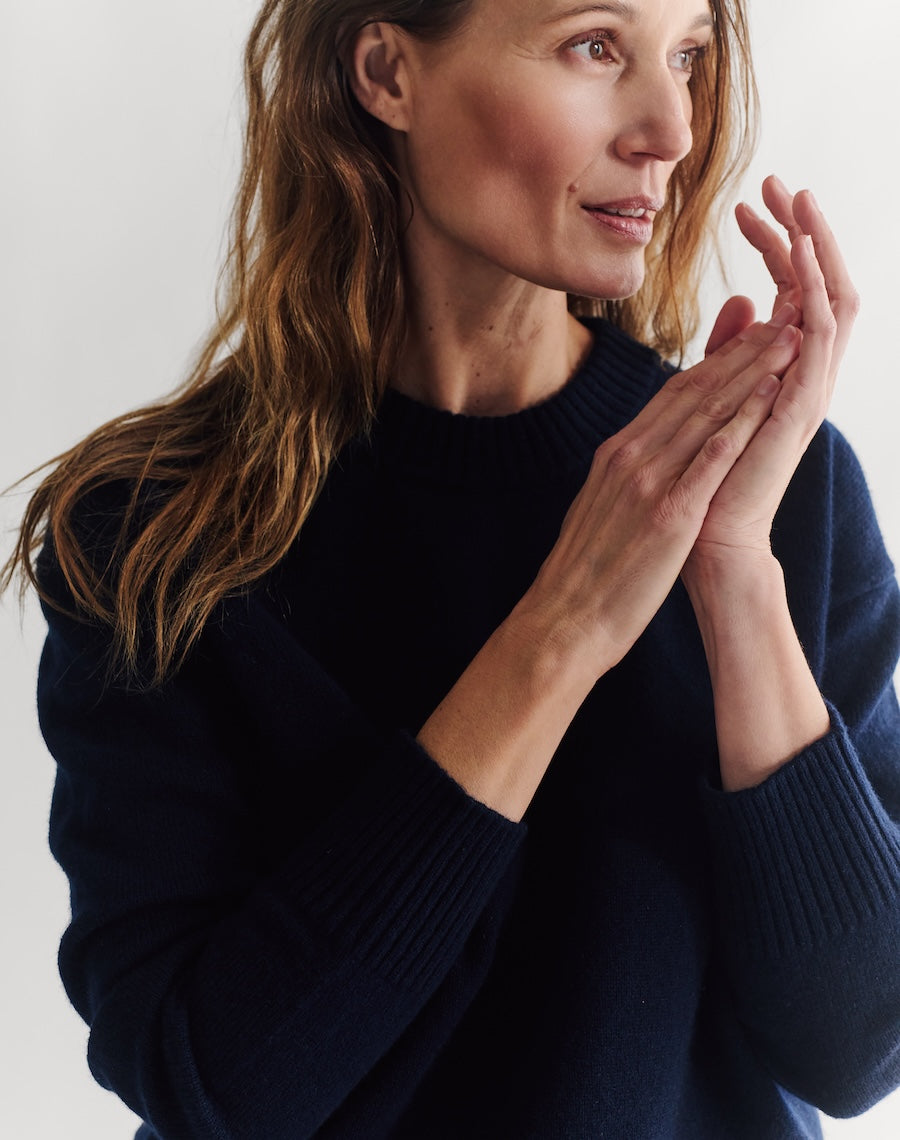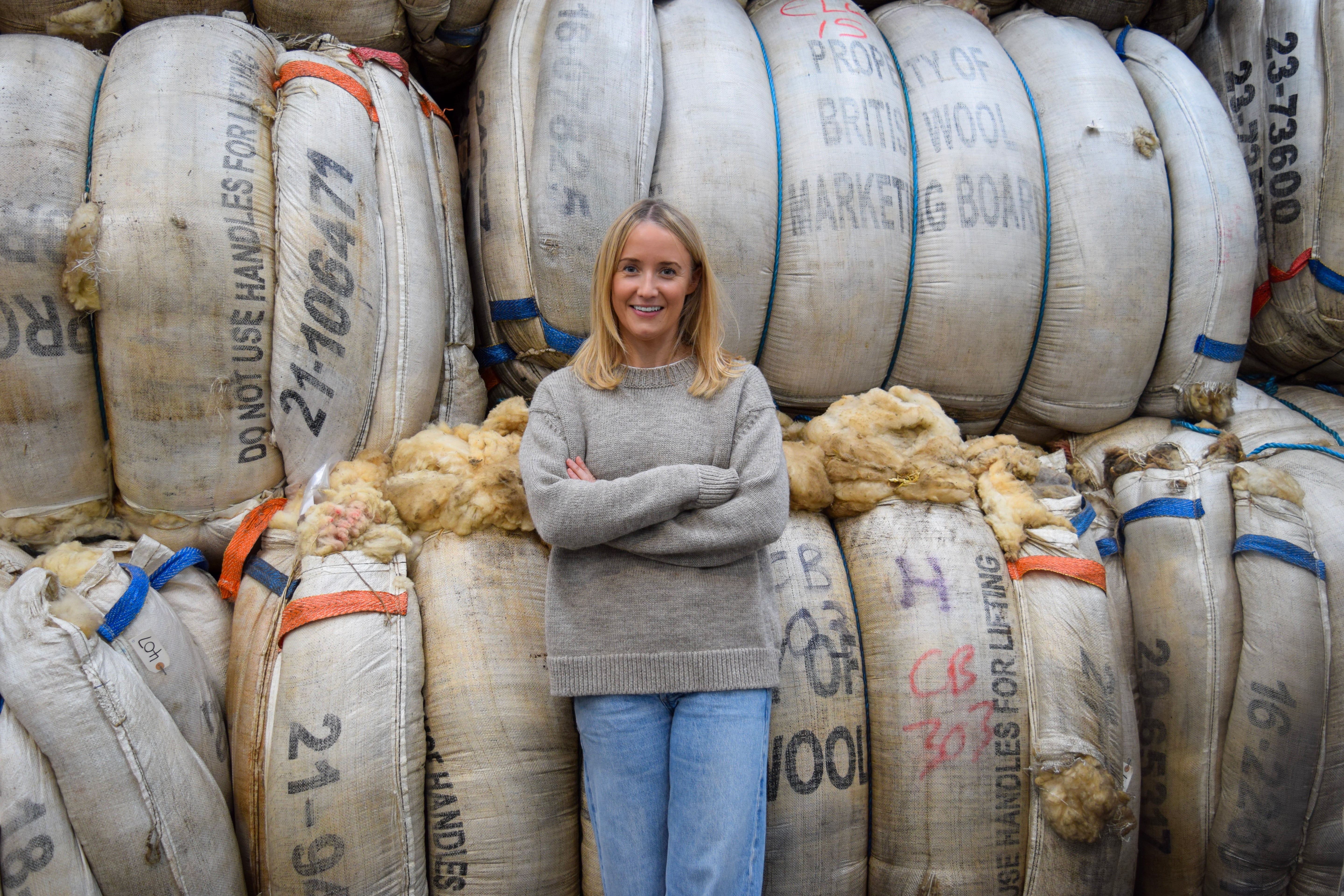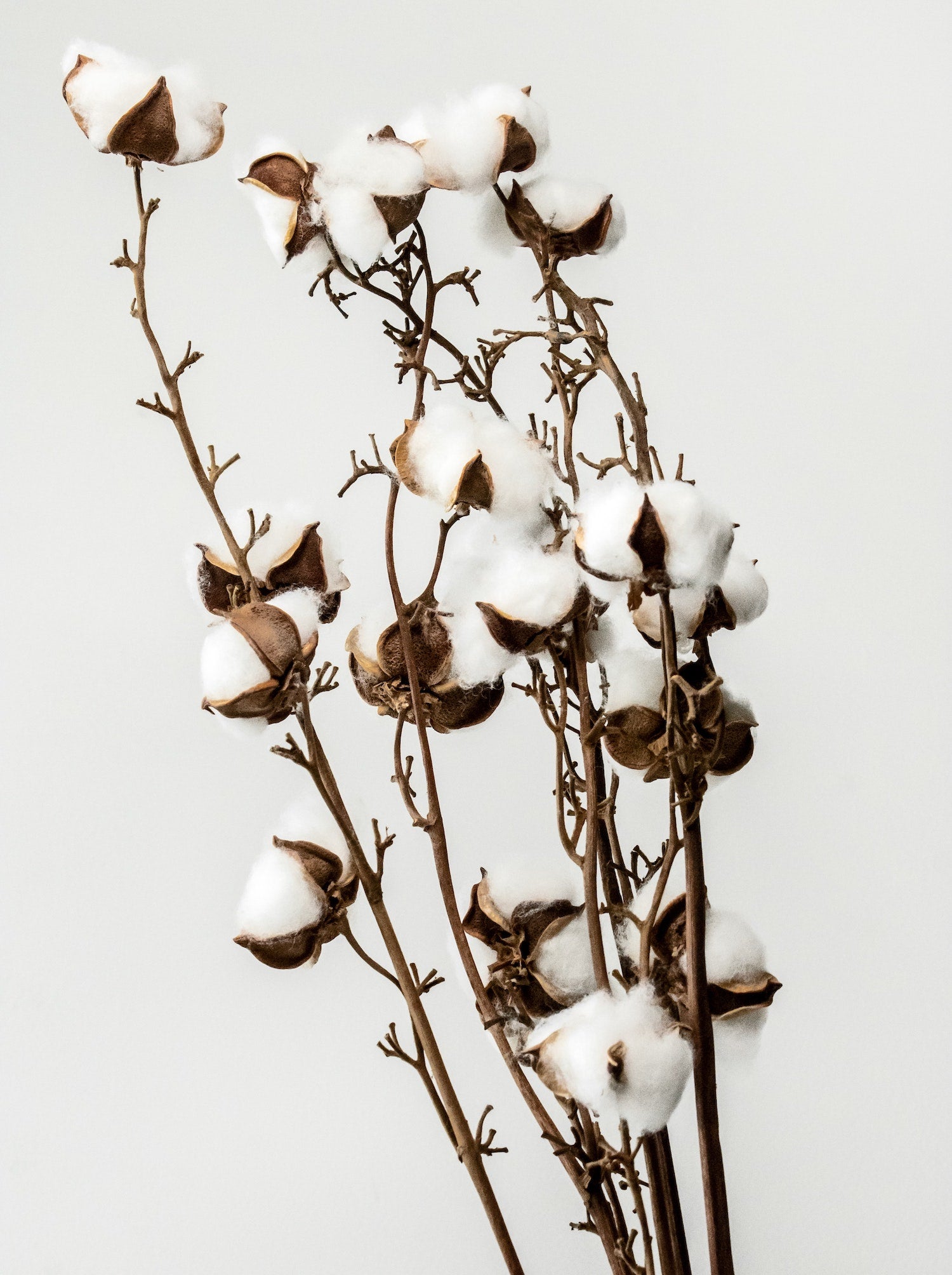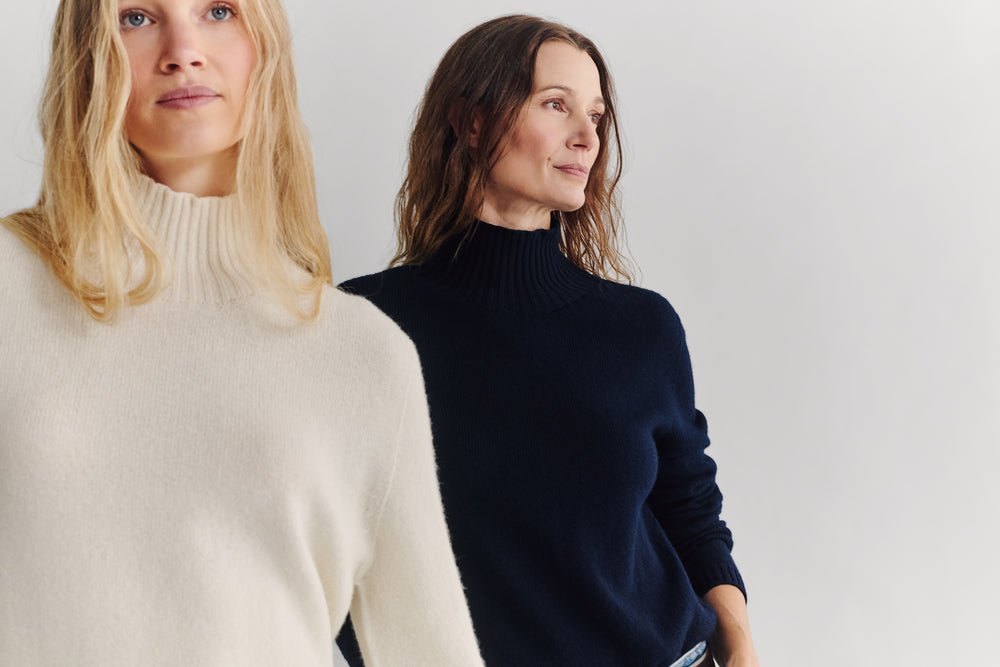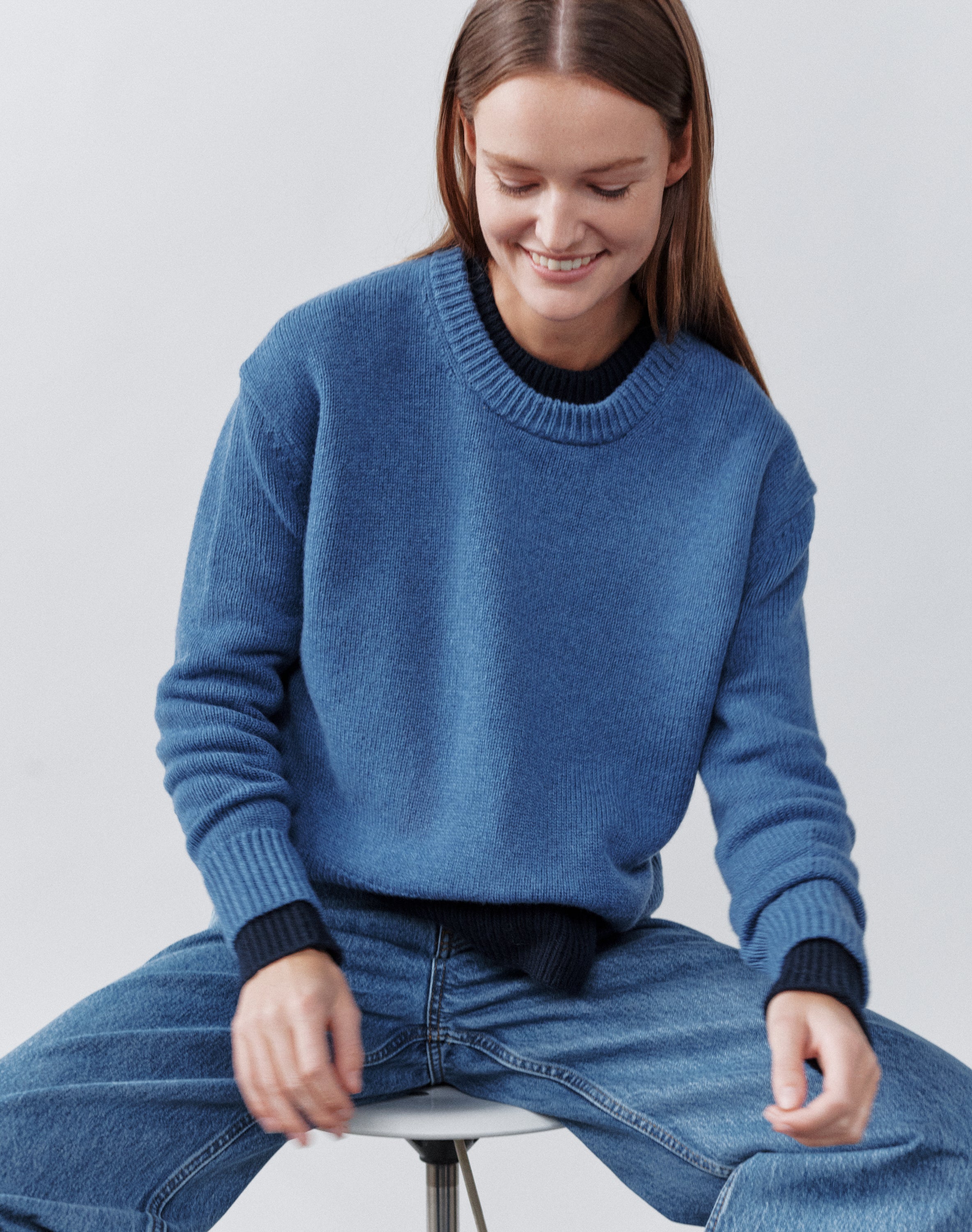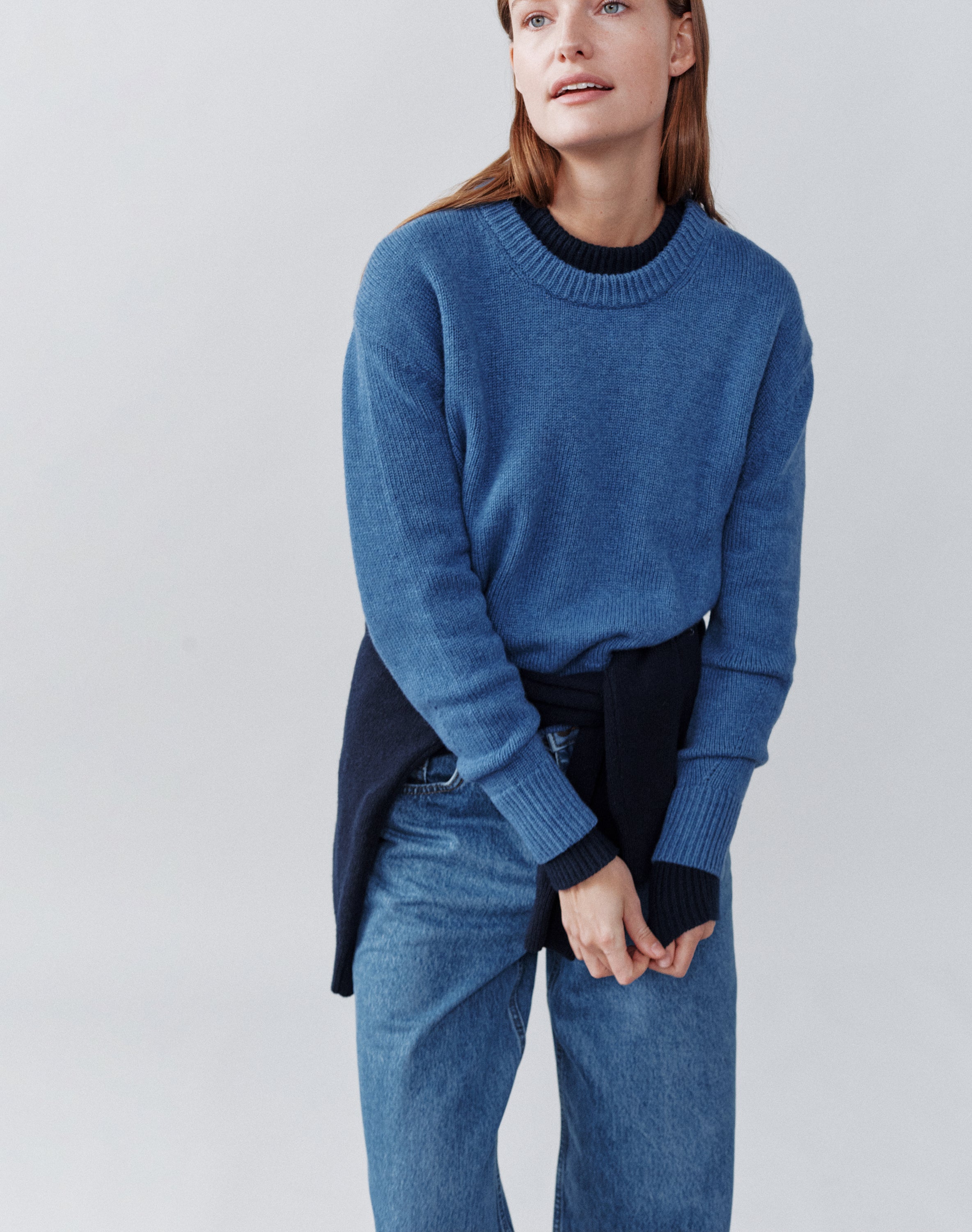You hear a lot about organic cotton. So much so that sometimes it seems like just another descriptor. Like ‘soft’, or ‘chunky knit’. You probably know that it’s better than normal cotton, but you may not know how much better. We're exploring organic cotton in more detail to explain why it’s kinder to the planet, the grower, the machinist and the wearer.
1. The problem with conventional cotton
First off, let’s take a look at non-organic cotton. It’s a natural material, so it’s renewable and biodegradable. So far, so good. The problem is how it’s grown.
Conventional cotton farming uses a huge amount of pesticides. In fact, around 16% of all the pesticides sold in the world are used on cotton, which is why it’s been called the ‘world’s dirtiest crop’. As well as killing the pests they’re aimed at, these chemicals can harm other wildlife, including bees. The pesticides also get washed into rivers and other waterways, where they harm fish and the animals that drink the water. And they damage the soil, meaning it’s harder to grow more crops without extra fertilisers and other chemicals.
Even more concerning is their impact on people. According to the Soil Association, “Pesticide use leads to indebtedness, chronic ill-health and even death among cotton farmers in the world’s poorest countries.”
Cotton farming uses an incredible amount of water, and it’s often grown in countries that frequently experience drought. In India, for example, more than 100 million people don’t have safe access to water, and conventional cotton farming is exacerbating water shortages in some of the country’s poorest regions.
As if all that wasn’t bad enough, non-organic cotton farming contributes to climate change. Those fertilisers we mentioned are created with fossil fuels, and pesticides result in huge amounts of nitrous oxide (a greenhouse gas) being released into the atmosphere. 2. Organic farming is different
2. Organic farming is different
Organic farmers work with, rather than against, nature. They use natural methods of pest control and work to keep the soil and plants healthy, so there’s no need for fossil-fuel-based fertilisers. Organic farming almost halves the amount of CO2 released compared to conventional cotton. And it reduces the amount of water needed by over 90%.
There are numerous benefits to the farmers too. For a start, farming organically means that workers don’t have to handle or breathe in potentially dangerous chemicals. Crop rotation means that more food is grown locally. And because the soil is sensitively farmed, it retains its nutrients, meaning that the farm can go on producing crops for future generations.
Consumers benefit from organic cotton as well. There’s no pesticide residue to be absorbed by your skin, and there’s less risk of irritation.
Of course, before the cotton reaches a shop, it needs to be spun, woven, dyed and turned into clothing. At every stage of the process, people benefit from reduced exposure to chemicals. And if the cotton is certified, there are other benefits to workers too. 3. Buying organic cotton
3. Buying organic cotton
When you’re buying organic clothing, check that it’s been certified by an independent association such as the Global Organic Textiles Standard (GOTS) or the Soil Association.
Certification doesn’t just mean that the cotton has been grown without harmful pesticides; it also covers working conditions and other aspects. For example, if you see the GOTS logo, you’ll know that the people who grew the cotton and made the item have safe working conditions and that any dyes used have minimal impact on the environment. You can also rest assured that no child or forced labour was used at any stage of the process, right from the sowing of the cotton seeds through to the sewing of your clothes.
4. An extra step forward
While organic cotton is far better than cotton grown with pesticides, it’s still not quite as good as regenerative cotton. We've begun working with some regenerative farms producing our Lamb's Wool, and we're exploring the possibility of regenerative cotton for future production. It's something we really believe in – making things well – so we will keep looking for ways to improve our process. 
